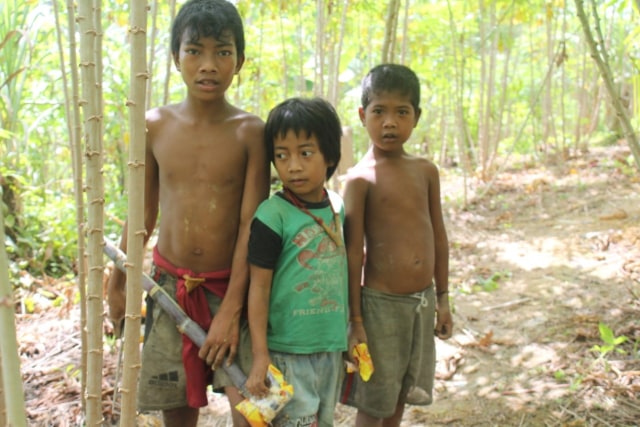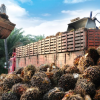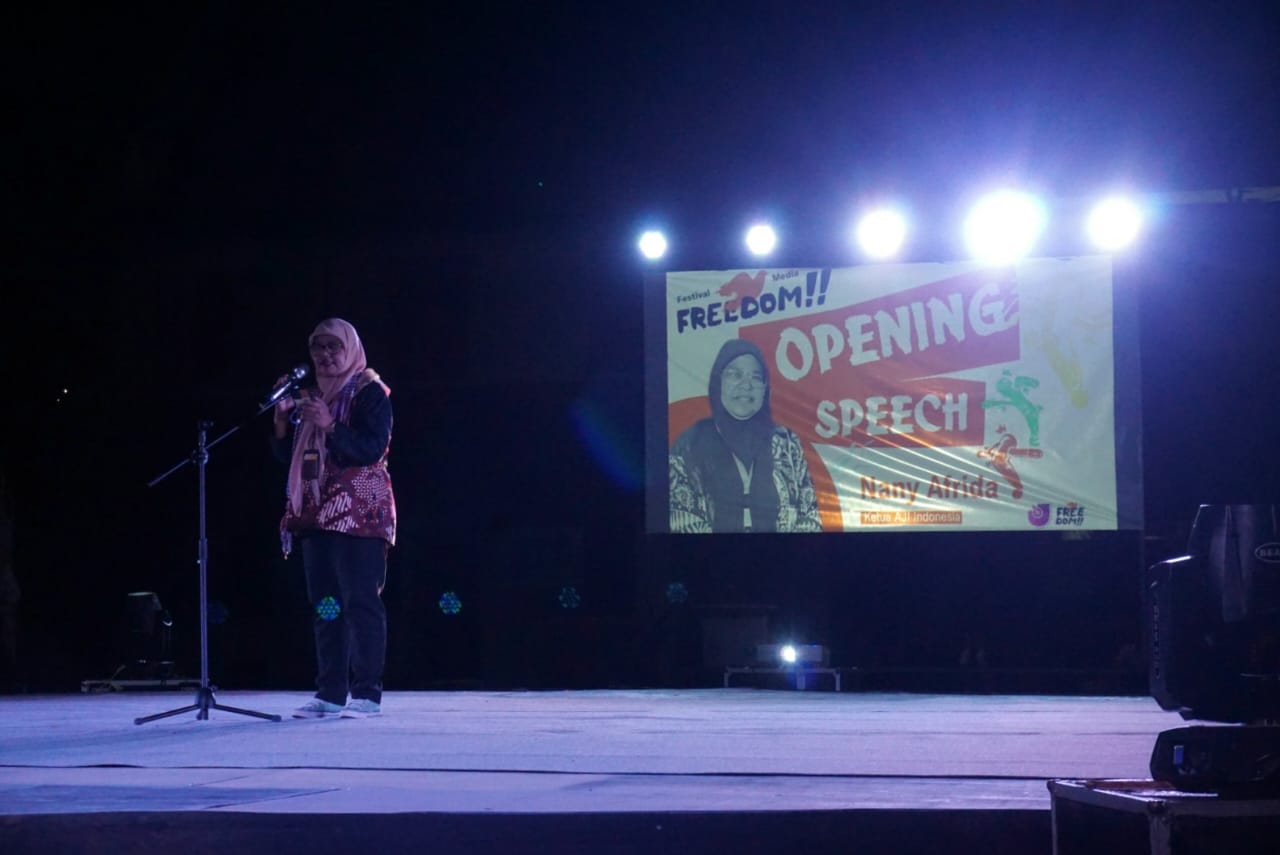Independen --- COVID-19 had hit Jambi. Several regions have started to implement large-scale social restriction (PSBB). The explosion of cases made all areas on high alert. On Friday, August 7, there were only two green zones in Jambi: the Merangin and Bungo. Meanwhile, the yellow zones were Kerinci, Sarolangun, Batanghari, Tebo, Muaro Jambi, East Tanjab, and West Barat districts, as well as the cities of Jambi and Sungaipenuh.
The number of positive patients with COVID-19 reached 205 people. Of that number, 117 people had recovered while four people had died. Meanwhile, there were 2,915 patients classified as “suspects.”
Jambi’s Covid-19 Task Force spokesman Johansyah said that during the pandemic, his team had taken various preventive measures. Starting from securing borders and security checks for people entering Jambi to carrying out mass rapid tests in all regions.
For several months the local government had closed harbors and airports and places of worship, schools, campuses, malls, entertainment, and tourism places, and even small markets were closed. Office employees were also encouraged to work from home.
Not only that, activities that involve a large number of people, such as weddings, were also prohibited. Meeting had taken place online, and all market activities were temporarily suspended.
Several regions, Johansyah said, had imposed curfews and had obliged for everyone to wear masks. Violators could be fined with Rp50,000 (US$3.40). All places that were potentially visited by many people had to provide a handwashing station complete with hand sanitizers.
Public spaces such as residential, offices, hospitals, parks, even roads were sprayed with disinfectant. People coming from outside the region were requested to self-isolate for 14 days.
Various methods were employed to prevent COVID-19 transmission. Including Orang Rimba with their unique and time-tested way against the plague. Orang Rimba also implemented regional quarantine (besesandingon), social distancing (seselungon), and self-isolation (cemenggo).
Based on historical records, Orang Rimba had been most successful in controlling the epidemic. When there had been a smallpox plague, they were forbidden to go to the lowlands and be around strangers.
When they had to conduct a transaction with others, they do it without talking and from afar, while avoiding the lowlands. The method was successful in averting the smallpox epidemic. In a century, there were only three cases of smallpox outbreak recorded in the community, far less than in other areas.
Similarly, to avoid the Coronavirus, KKI Warsi anthropologist Robert Ari Tonang said, Orang Rimba would go deeper into the forest, avoiding contact with the outside world.
If someone from outside of the community wants to see them, they have to wait for three days in the Sudong, a temporary shelter made of tarpaulin roof and wooden floor. When they think it is safe, then they will agree to meet.
However, Tonang said, during this meeting, Orang Rimba will still keep their distance for up to ten meters. They call it seselungon. And if one of them becomes ill, they will also immediately build a Sudong for the sick in a part of the forest where Orang Rimba rarely pass.
 Orang Rimba children at their sweet potato garden. During the Besasandingon tradition, they only eat boiled sweet potatoes. (Photo: KKI Warsi)
Orang Rimba children at their sweet potato garden. During the Besasandingon tradition, they only eat boiled sweet potatoes. (Photo: KKI Warsi)
Exiling an ill Orang Rimba is called cemenggo. Family members who want to provide food and medicine for the sick will have to drop it off near the Sudong.
“They are cautious in dealing with an outbreak,” said Tonang.
According to local records, Orang Rimba have built up quite the experience when responding to an outbreak. From smallpox to whooping cough, and even dengue fever. All the treatments are the same: exile. A diarrhea epidemic in the 1990s claimed dozens of lives of Orang Rimba.
Ngelembo, who lives along the Terap river, led his family members into the forest when he heard the news that the Coronavirus outbreak was spreading. Besesandingon tradition was immediately put in place.
“Besesandingon is indeed our way to spread the transmission of diseases in our community,” said Ngelembo.
Keeping their distances by setting up sudongs that are hundreds of meters away from each other. A Sudong should also be close to water, medicinal herbs, Bedewo (godly) soil, and should be away from any kind of traffic.
The distancing, exile, or self-isolation are called cemenggo, Ngelembo said and must be done immediately and urgently whenever a family member has fallen ill. All Orang Rimba understand the Sudong points that can be used for cemenggo.
Once, after a week of lack of food, one of Ngelembo’s children started to develop a fever. He completely panicked and immediately built a special Sudong for his sick child. The sudong’s distance from where Ngelembo lived was bordered by embankments and rivers. His family members took off to live separately, distancing about a hundred meters from each other’s sudongs. They also have to half-shout when talking to each other since they have to keep their distance.
“If we want to send food, we just drop the food near the Sudong. Let the [sick] person pick it up on their own. So, no seeing or touching each other,” Ngelembo said.
Seeing the poor condition of his child, Ngelembo and other family members went away, leaving the child alone in the Sudong. On his way to leave his son, Ngelembo left a trail by breaking the twigs and branches to mark his path. When the child recovers, it can catch up.
After a day had passed, Ngelembo felt a bit worried when the child had not shown up. He started to think that his child had died. But as the sun began to set, Ngelembo breathed a sigh of relief. His child returned home, fully recovered.
Not only relying on besesandingon. Orang Rimba also relies on medicinal herbs. Ngelembo consumes herbs hoping that it would boost his immunity.
Orang Rimba also believes that the herbs would only work when a healthy female shaman prayed on them. To this community, their shamans are protected by dewo or gods. The shamans are necessary mediums for treatment and the person who leads and teaches their customs to the children.
As an intermediary of the gods, these female shamans—or Malim in the local language, would lead a healing ritual called bebale. They believe that their dewo will heal the sick in this ritual.
After following the procedures: besesandingon to prevent broader transmission in their community and the medicinal herbs, it was up to their Malim—an intermediary for the gods, to treat the sick. (Suwandi)
Read too: Pursuing Covid-19 Aid for ‘Orang Rimba’
*This article is made possible by the COVID-19 budget transparency fellowship with AJI Indonesia and UNESCO (D02)









